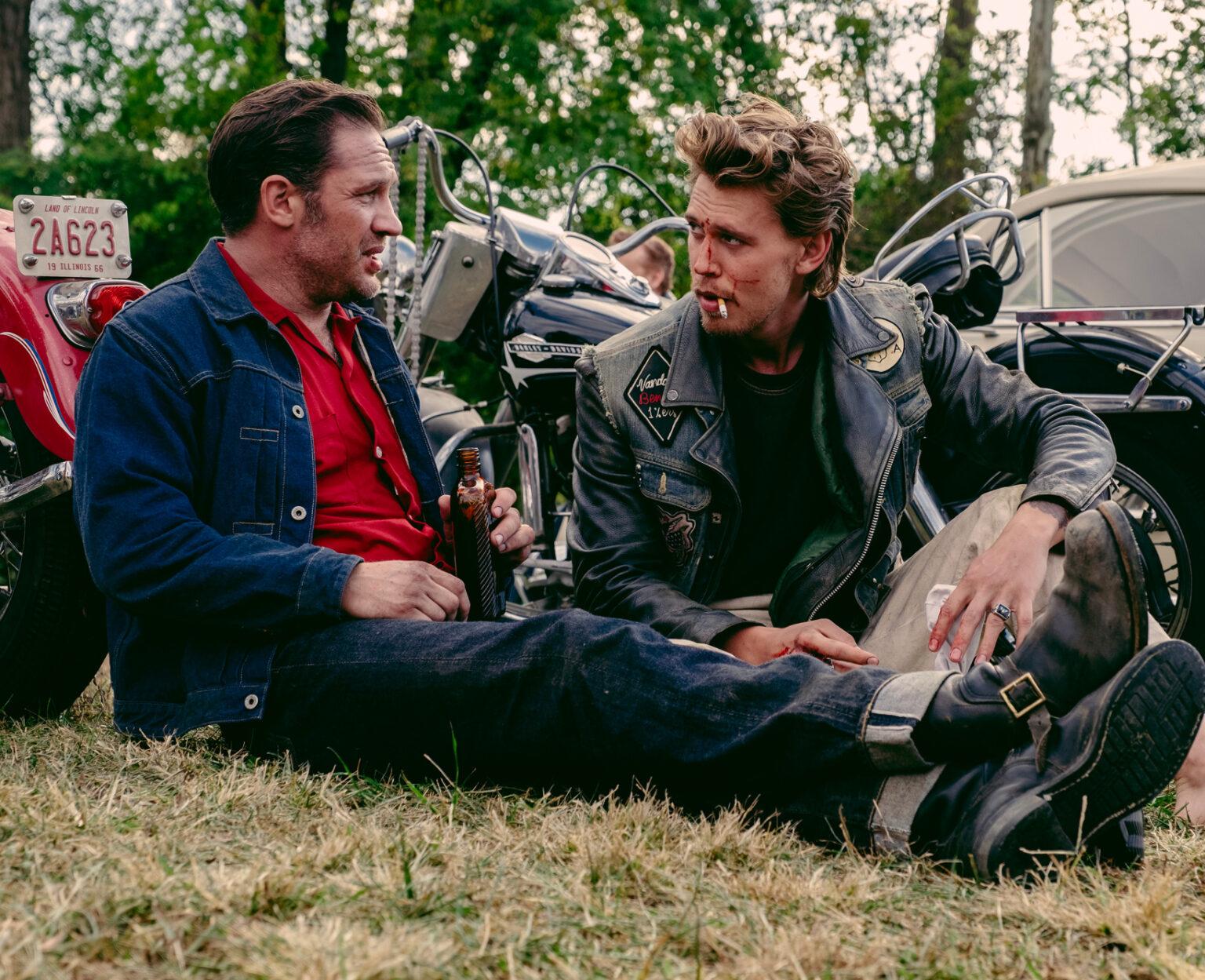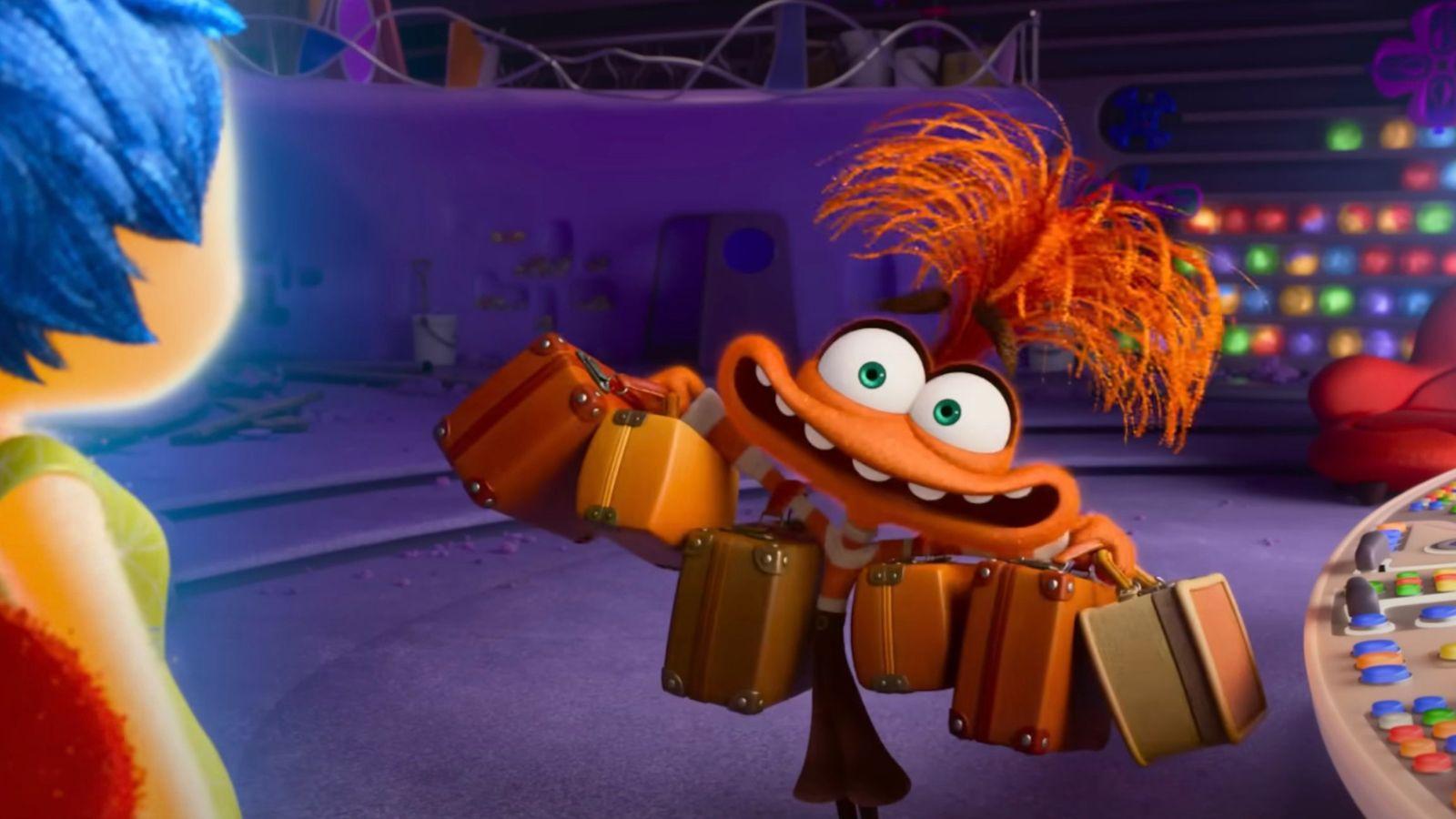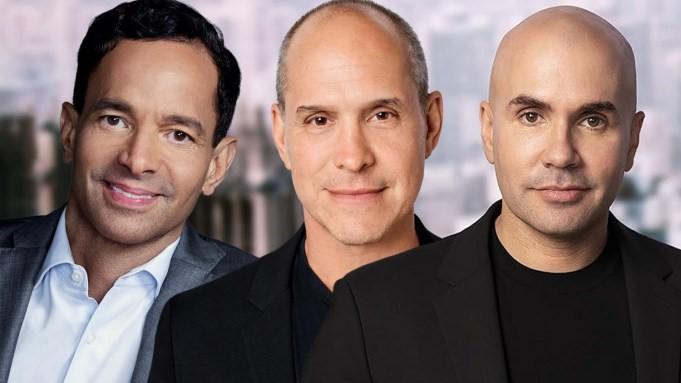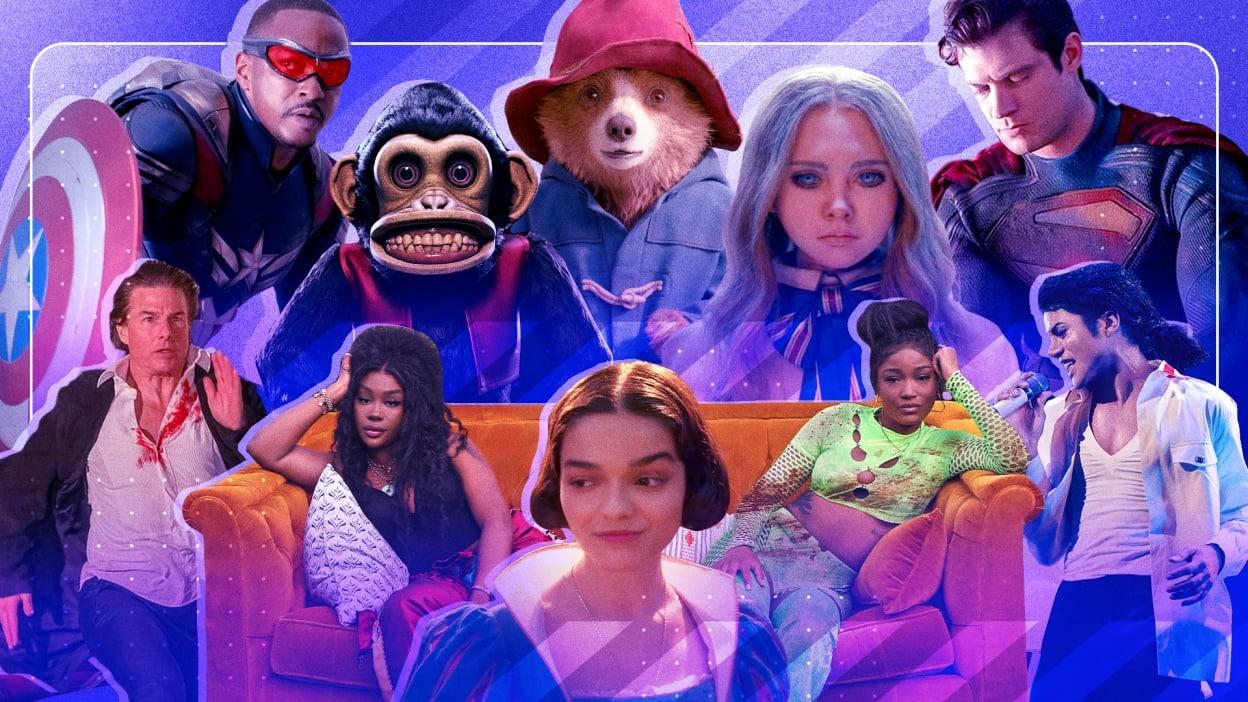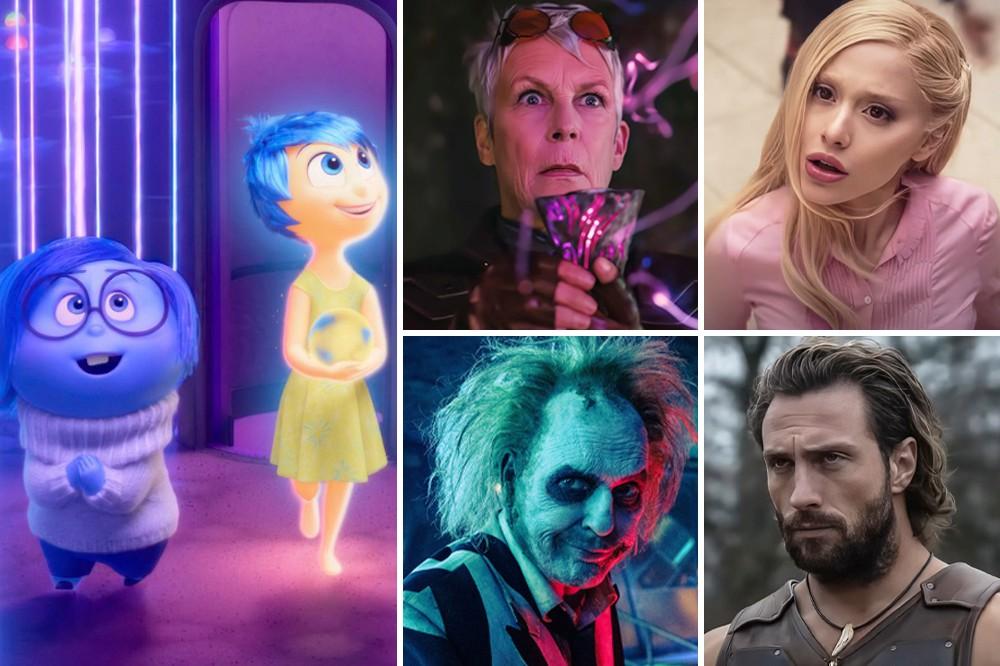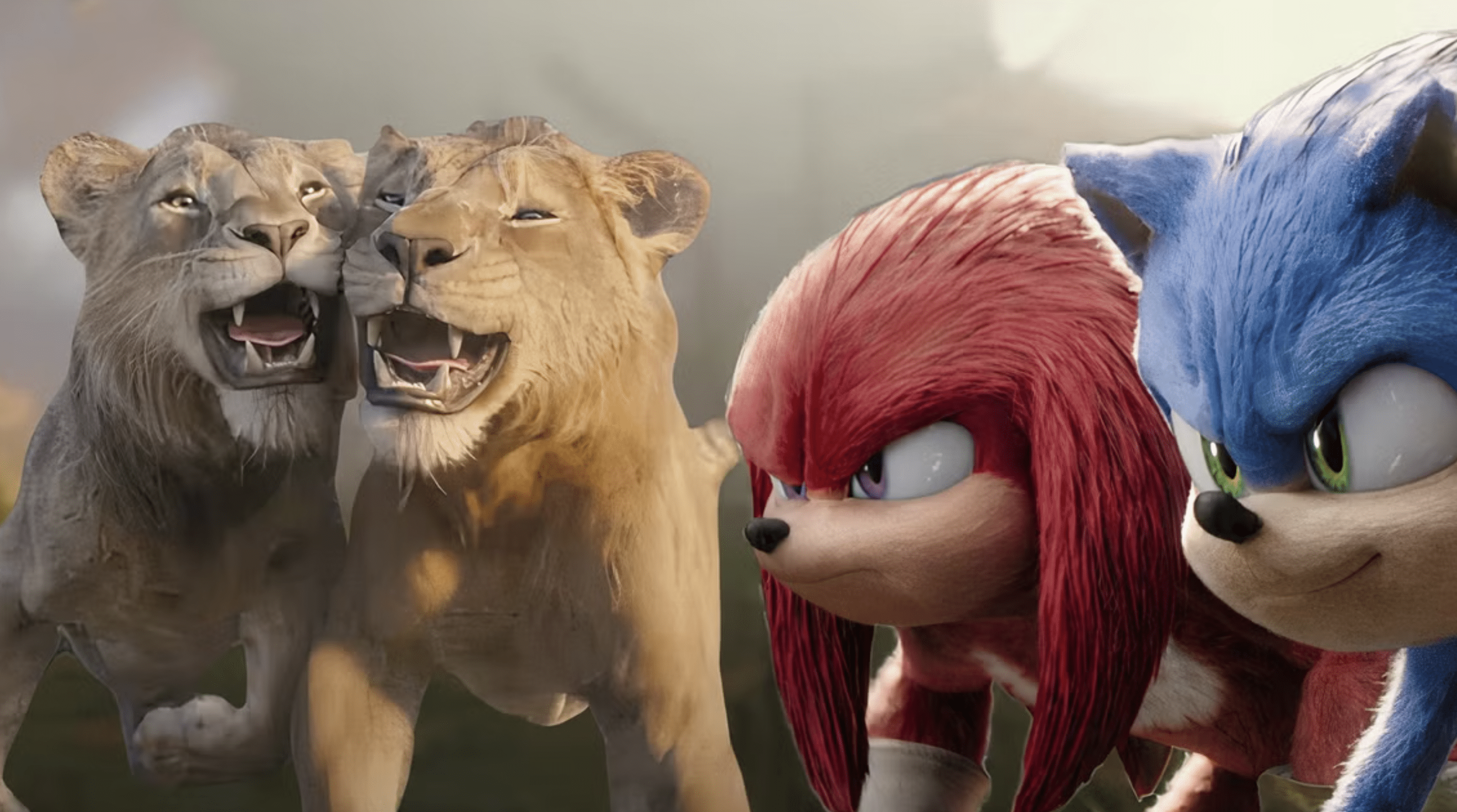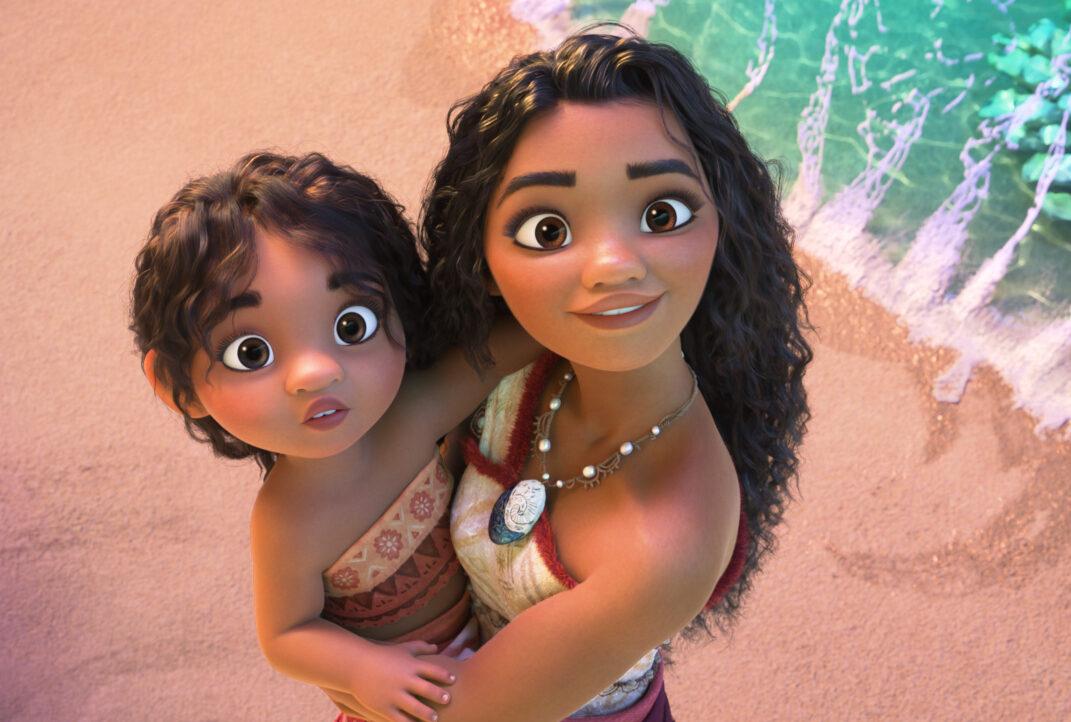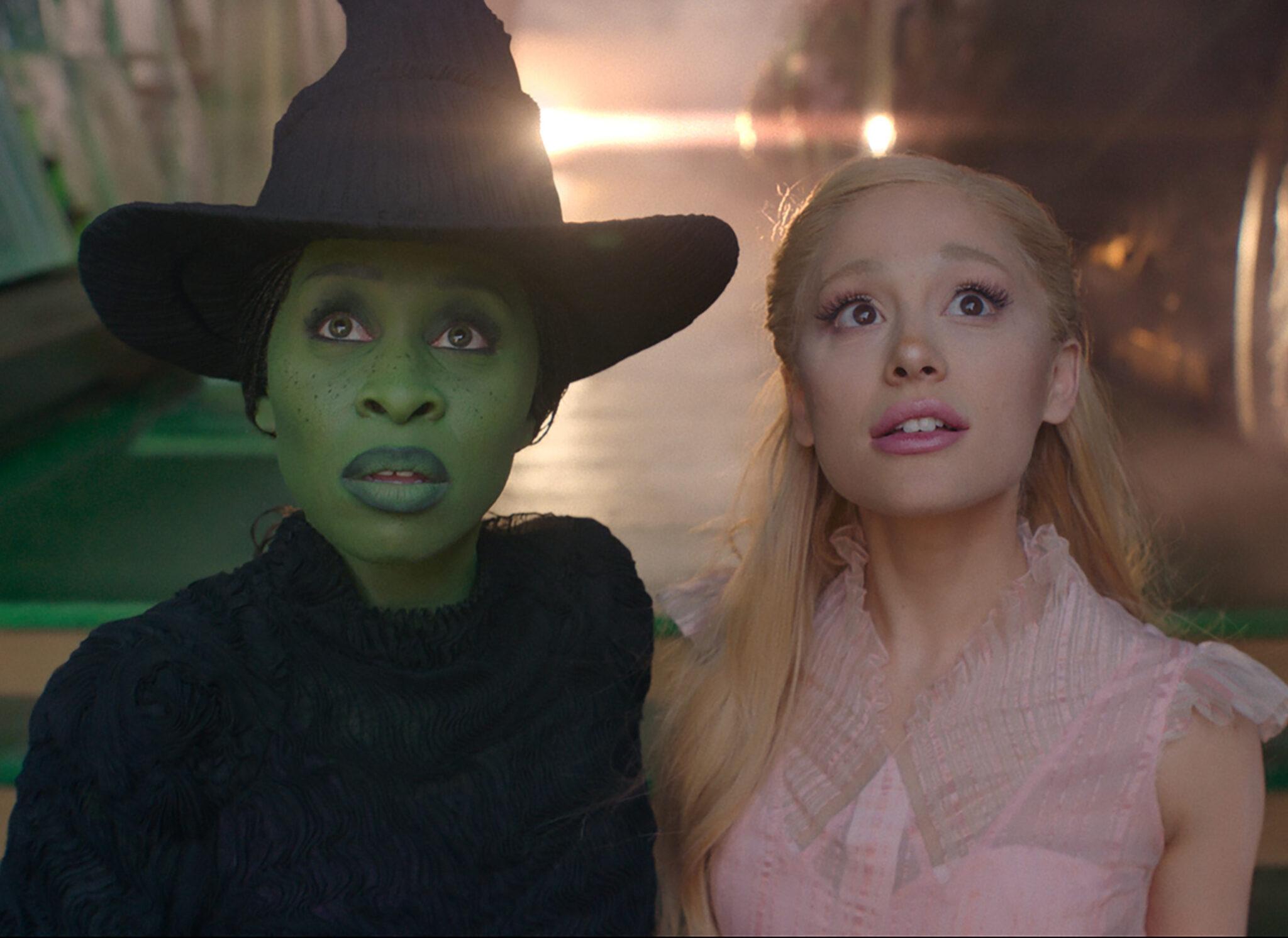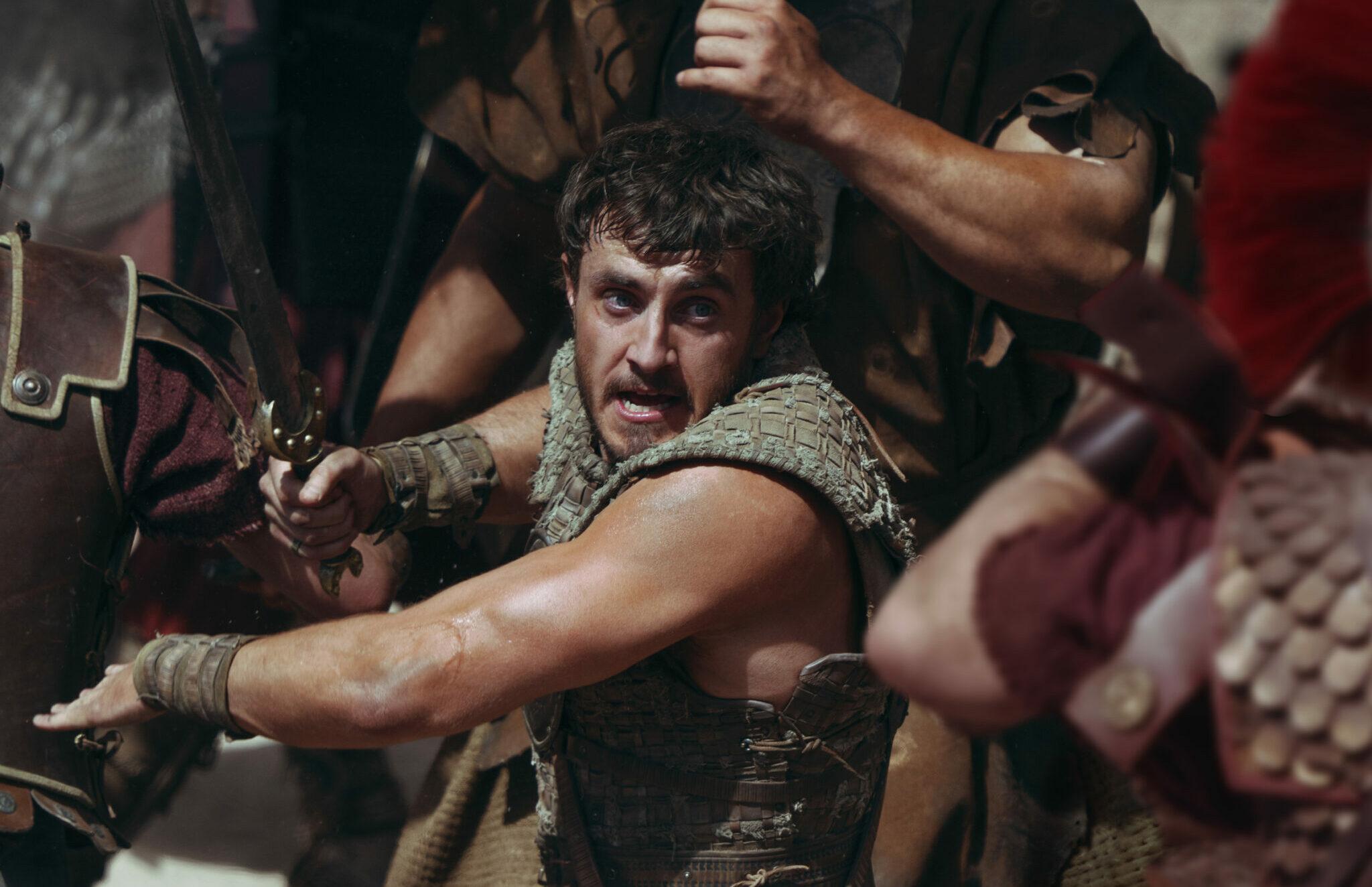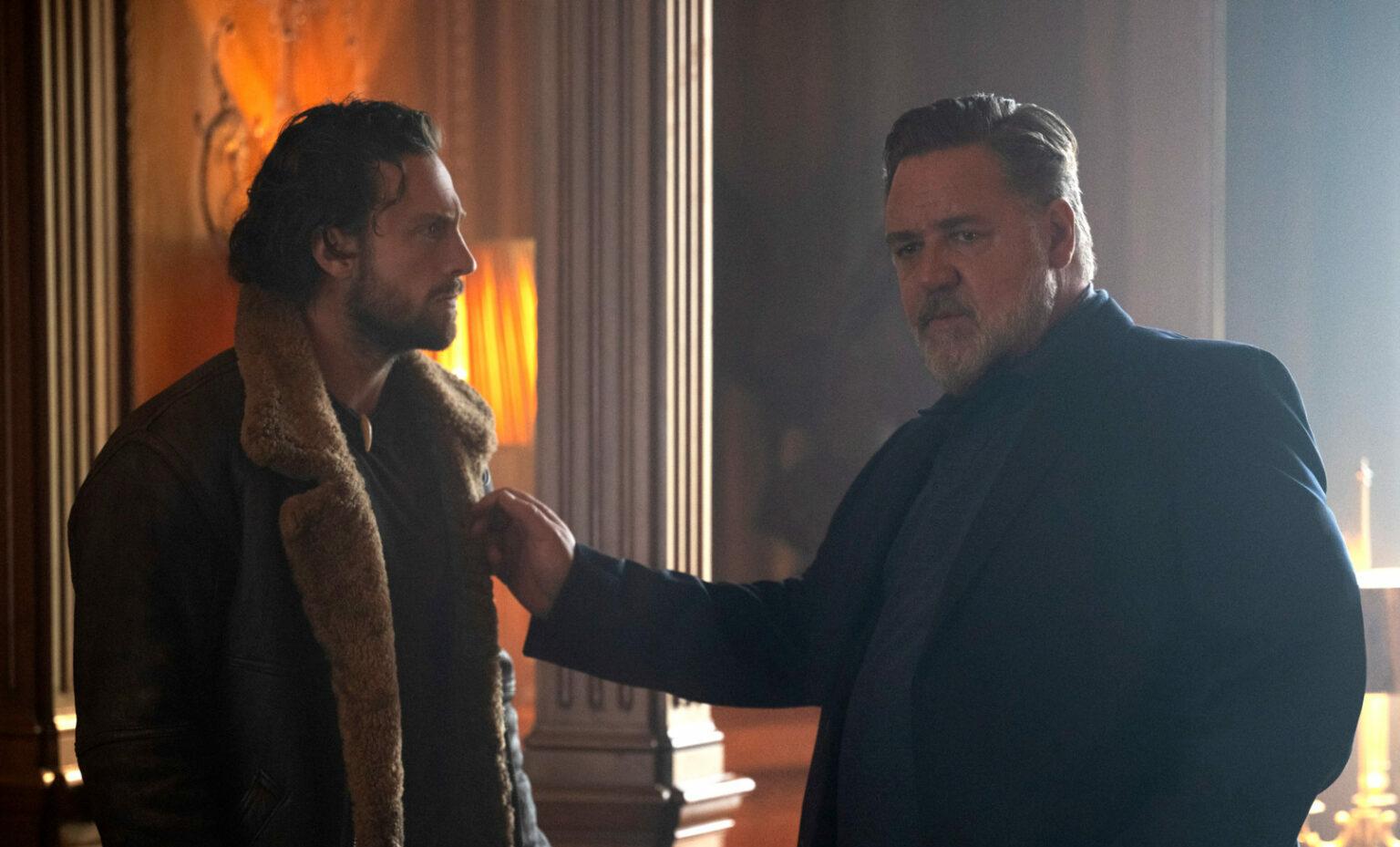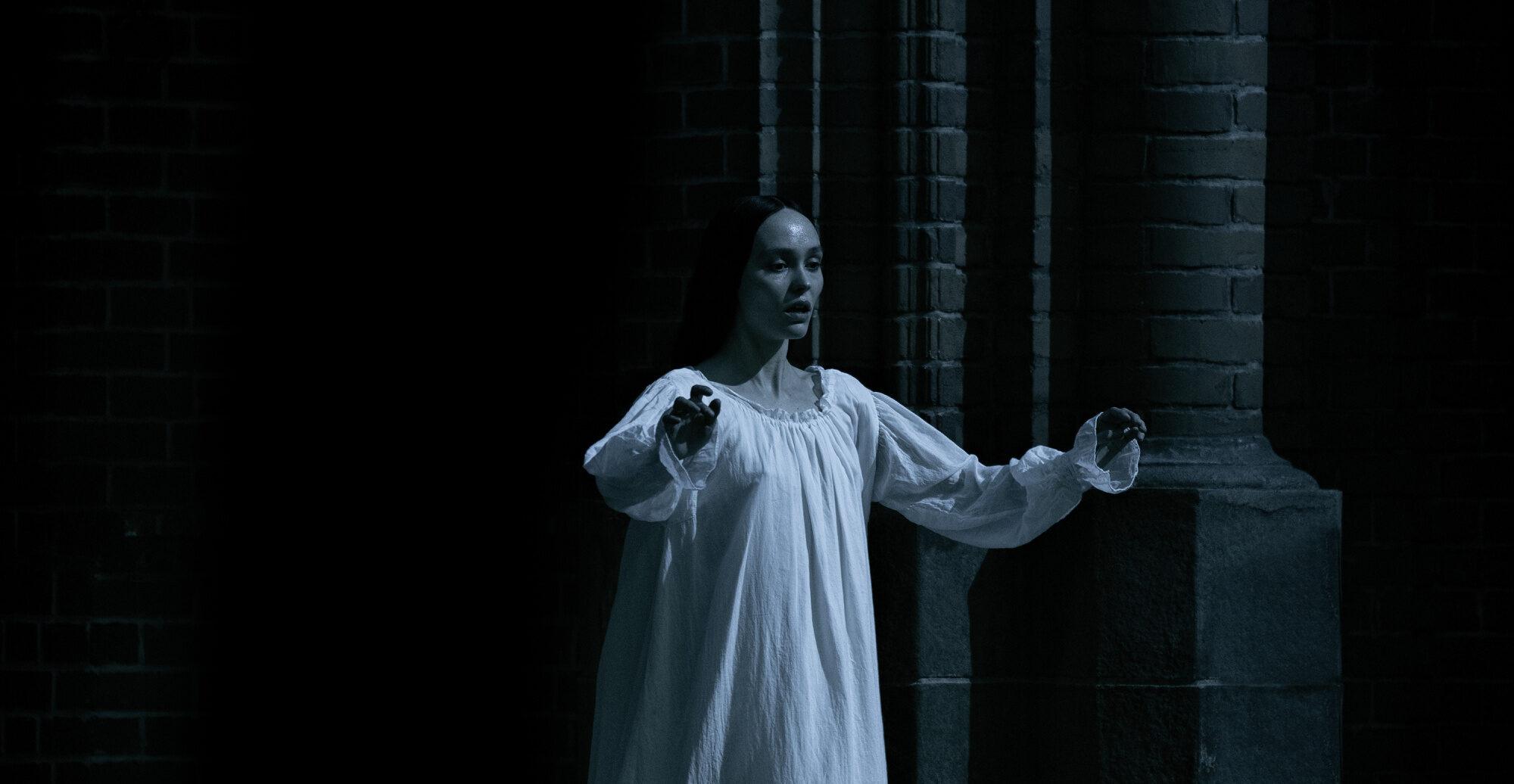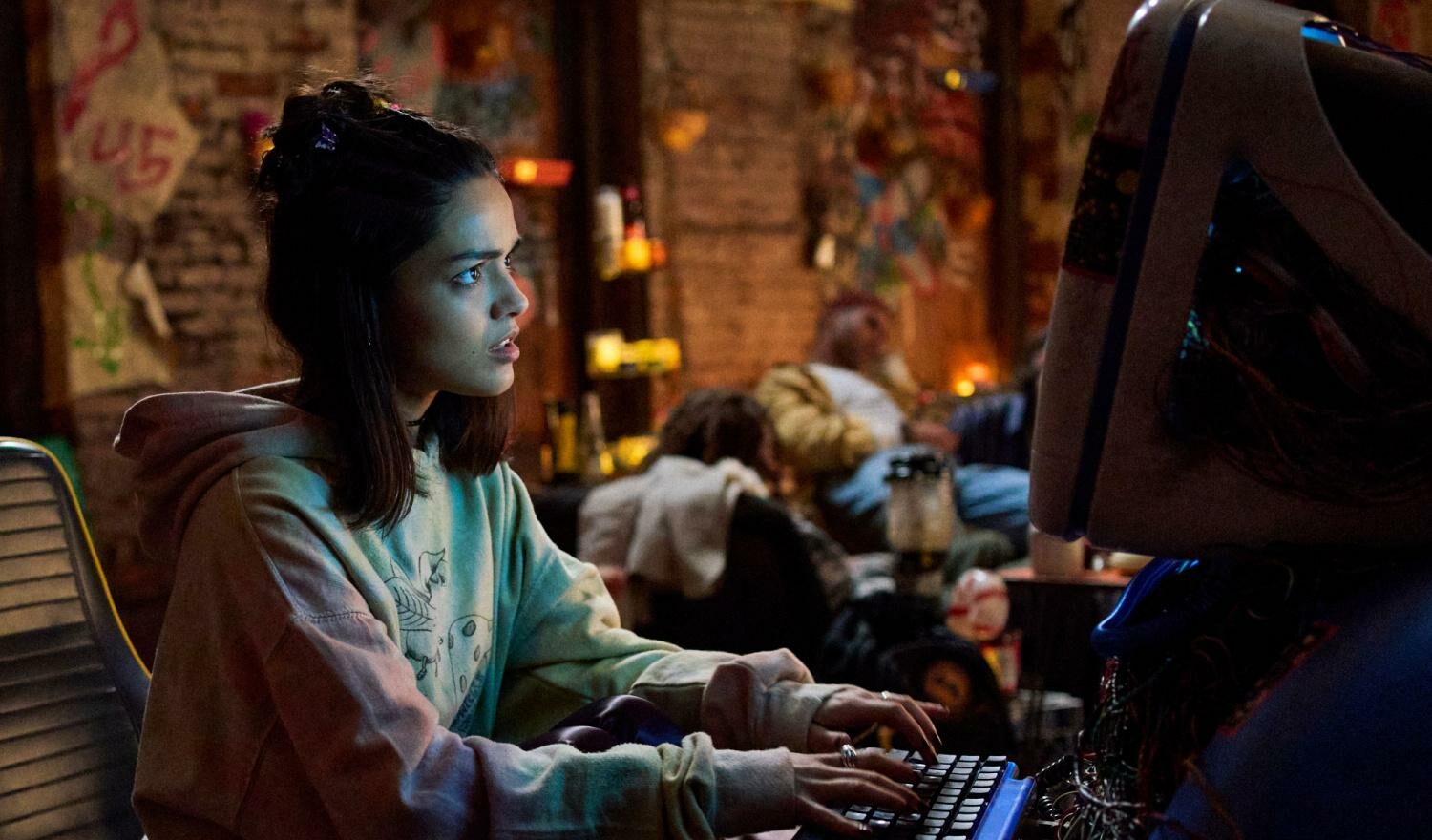VERDICT: Writer-director Jeff Nichols relies more on mood than narrative to capture the rebellious spirit of 1960s biker gangs.
Jeff Nichols’ The Bikeriders takes its inspiration from the book of the same name by legendary photographer Danny Lyon, and the result is a film that operates like a perfectly curated gallery exhibit, conveying nearly everything it has to say through images rather than the accompanying text. These bikers don’t talk much about themselves; the camera works overtime to tell their stories.
Mike Faist as Lyon acts as a conduit for the audience; the real-life photojournalist and documentarian embedded himself with the Chicago Outlaws from 1963 to 1967 (publishing the book in 1968), while the movie version of Lyon spends time with them in the mid-1960s before popping up again in the early 1970s for a post-mortem. His most cooperative interviewee isn’t one of the guys. Instead, Kathy (Jodie Comer), a young woman who never would have imagined herself as someone who would hang out with bikers, fills in the silence the men are more likely to keep.
When Kathy joins a friend at a bar full of hard-partying (and lady-grabbing) bikers, she observes Benny (Austin Butler) playing pool, and there’s no turning back. (Nichols realizes what a movie star he has in Butler, leveraging the occasional close-up as a substitute for pages of dialogue explaining why Kathy would fall so hard for someone who will be a lot of trouble.)
Benny, as might be expected, makes a lot of rash and self-destructive decisions throughout the ensuing narrative, but his wooing of Kathy isn’t one of them; after they spend the night on his chopper, he parks his bike across from her house and stands there, waiting. When her irritated boyfriend storms off, Benny rings the doorbell. And they’re off and running.
Benny runs with the Chicago Vandals, a gang started by truck driver Johnny (Tom Hardy), who isn’t getting enough thrills merely racing motorcycles. Johnny’s inspiration is also image-based, jump-started by watching Marlon Brando in The Wild One on TV as his kids run in and out of the living room. Unsurprisingly, Brando’s casually menacing presence ignites Johnny’s desperate desire, a burning to be anywhere else and do anything else.
What overt plot there is follows a standard 1960s death-of-the-American-dream narrative, with the rowdy and raucous bikers eventually supplanted by a younger breed with darker visions of life, Vietnam veterans who eschew beer for marijuana and, later, heroin. Like Oliver Stone’s Platoon, The Bikeriders draws a line between the beer drinkers and the pot smokers. Still, it reverses Stone’s take by making the alcoholics more chill than the stoners, and what codes of honor exist fall by the wayside to new and more violent gangs who become organized-crime families on two wheels.
Hardy and Butler give Johnny and Benny a moving father-son dynamic in which feelings are inferred but never addressed. And while the subtextual homoeroticism of bikers has fueled the work of queer artists like Kenneth Anger and Tom of Finland, the closest that Nichols gets to those waters is a conversation scene where the two men speak very quietly to each other, their mouths and ears intimate in their proximity.
With all these strong, silent types on hand, it falls to Comer’s Kathy to provide both the explicit narrative and the emotion of The Bikeriders, and she handily delivers. Comer makes Kathy such an engaging storyteller — with an incredulous raconteur style — that she carries much of the movie. Without the bikers, this becomes a riveting and hilarious one-woman monologue; without Kathy, it’s a bunch of guys figuratively (sometimes literally) very beautifully knocking their heads together.
Nichols’ screenplay eschews character backstories, appropriately enough for people living strictly in the present, but veteran casting agent Francine Maisler has populated the cast with talented actors with memorable faces. With an ensemble that includes Michael Shannon, Emory Cohen, Boyd Holbrook, Beau Knapp, Toby Wallace, and Norman Reedus, to name but a few, these bikers build personalities with gestures, balancing out a paucity of screen time and dialogue. (Amid the non-bikers, Phuong Kubacki makes an impression with her extravagantly spherical hair-hopper bouffant.)
There are no exposition dumps about the restlessness of the mid-century American male, home from World War II and looking for excitement and freedom from conformity; the performers and Nichols’ talented crew of craftspeople work together toward meaning. The Bikeriders marks the filmmaker’s fourth collaboration with editor Julie Monroe, his fifth with composer David Wingo, and cinematographer Adam Stone is six-for-six on the director’s features.
Even if the only way to endow 1960s biker gangs with a sense of majesty and glory is to compare them to what would come later, Nichols captures those moments of fleeting greatness, allowing his lost men room to inhabit their private inventions, to build their subculture and its mythologies, if only for a short time. Like Lyon before him, Nichols turns that moody ambience and truncated dream of freedom into living, breathing, memorable art.


